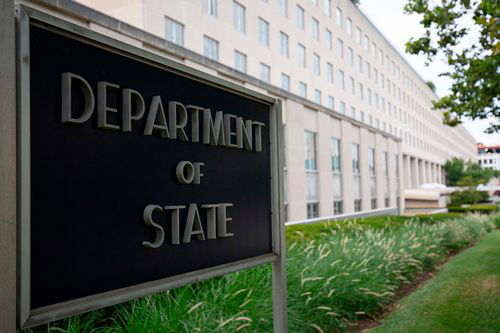State Department names senior official to lead response to mysterious ‘Havana syndrome’ attacks

The US State Department on Friday designated a senior official to lead the agency’s response to the invisible attacks against diplomats and US personnel that have left dozens suffering from debilitating symptoms known as the “Havana Syndrome.”
Amb. Pamela Spratlen, a career foreign service officer, will serve as the Senior Advisor to the Health Incident Response Task Force, which was created in 2018 to coordinate the response the spate of incidents that affected US government employees in Cuba, Russia and China and left many with long-term brain injuries.
In a shift from past procedure, Spratlen will report directly to State Department senior leadership, including Secretary of State Tony Blinken.
In a statement to CNN, Blinken said, “We have no higher priority than the health and safety of our people, and Ambassador Spratlen will help us address this issue wherever it affects Department personnel and their families.”
“She will streamline our coordination with our inter-agency partners and reaffirm our commitment to make certain that those affected receive the care and treatment they need,” he said. “I will work closely with her, as this is a priority for me and the full Department.”
A senior State Department official told CNN that Blinken has received several briefings on the “Havana Syndrome,” including while he was secretary-designate. This official said that it was important that Spratlen have direct and regular access to the top US diplomat and his team because “this is a challenge that goes beyond any single country at the moment and we want to make sure that we have a full accounting of those who may be affected by this.”
“That will be a key task of Ambassador Spratlan and the task force,” the official said.
Some of the victims have criticized the US government response to the incidents, which affected US diplomats, CIA officers and other US government personnel posted abroad. Personnel in Cuba in late 2016 began experiencing unexplained symptoms, such as dizziness and pounding headaches, sometimes accompanied by an unidentified “piercing directional noise.” The attacks eventually led to a dramatic draw down of staff at the outpost in Havana under the Trump administration. Personnel in Russia and China reported similar, unexplained incidents.
A recently declassified 2018 State Department Accountability Review Board report, obtained by the National Security Archive, highlighted significant problems with the Trump administration’s response to the Havana incidents, including a delayed response caused by “excessive secrecy” and “serious deficiencies in the Department’s response in areas of accountability, interagency coordination, and communication, at all levels” in Washington and Havana.
“The Board finds the lack of a designated official at the Under-Secretary level to manage the response to be the single most significant deficiency in the Department’s response,” the 2018 report noted, according to the National Security Archive.
Lawmakers had also long urged the federal government to make the issue a priority. On Friday, several praised the Biden administration for naming Spratlen to the senior role.
“This news is long overdue, and I thank @SecBlinken for taking this decisive action in an effort to protect our foreign service officers, diplomats, and public servants stationed overseas,” tweeted Democratic Rep. Abigail Spanberger, a former CIA officer.
Sen. Jeanne Shaheen said in a statement that she was “very encouraged to see the Biden administration step up where the Trump administration failed or refused to do so, which directly impacted the health and wellness of those targeted by these attacks.”
“I’m glad to see the Biden administration make this a top priority. No stone can be left unturned and I look forward to working with Ambassador Spratlen and the State Department to see this through,” the New Hampshire Democrat said.
During a House Foreign Affairs Committee hearing Wednesday, Blinken told lawmakers he was “deeply committed” to a whole of government approach to address the attacks.
Sources familiar with the ongoing investigations into the attacks out of the separate US agencies — including the CIA, the FBI, the Centers for Disease Control and Prevention (CDC), and the State Department — say that a major impediment to their efficacy is the fact that they are largely siloed efforts. Interagency coordination has been limited, in part due to the highly classified nature of some details and the privacy restrictions of health records, and that has hampered progress.
Spratlen will work within the State Department, but also with counterparts in the interagency. The CIA recently set up its first-ever task force to focus on the attacks on US intelligence officers.
The US government has yet to name a suspected perpetrator. Asked during the hearing if they had identified who was behind them, Blinken said he was limited by what he could say in an unclassified setting, but “the short answer to your question is no.”